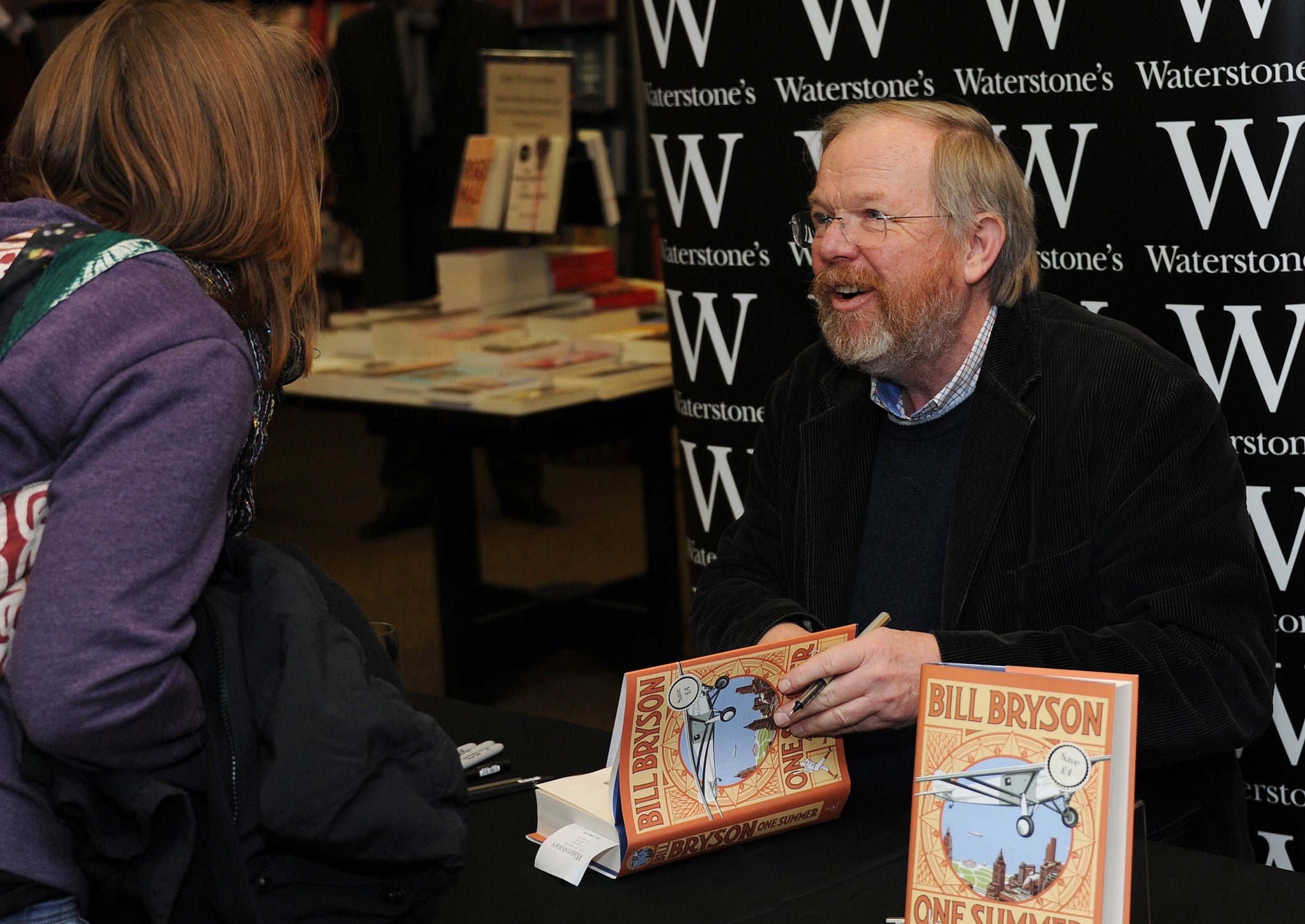Bill Bryson is right: British manners can be a smokescreen for rudeness
We seem to have moved from the ‘big society’ to the ‘small-minded, petty society’

Your support helps us to tell the story
From reproductive rights to climate change to Big Tech, The Independent is on the ground when the story is developing. Whether it's investigating the financials of Elon Musk's pro-Trump PAC or producing our latest documentary, 'The A Word', which shines a light on the American women fighting for reproductive rights, we know how important it is to parse out the facts from the messaging.
At such a critical moment in US history, we need reporters on the ground. Your donation allows us to keep sending journalists to speak to both sides of the story.
The Independent is trusted by Americans across the entire political spectrum. And unlike many other quality news outlets, we choose not to lock Americans out of our reporting and analysis with paywalls. We believe quality journalism should be available to everyone, paid for by those who can afford it.
Your support makes all the difference.Adoptive Brit and all-round good egg Bill Bryson made headlines this week for launching a (very polite) assault on British manners, or more specifically, middle-class British manners.
In his new book, Bryson writes of how he witnessed a well-heeled pensioner leave a measly 10p in the tip jar of a café in the Lake District when she assumed she would not be spotted. “Am I wrong or is this becoming a feature of British life – behaving in quietly disgraceful ways when you think no one is watching?” he asked.
It’s true that decent behaviour seems to more meaningful when it is witnessed by an audience, as anyone who’s seen a boastful Facebook status about how “I just gave a Greggs pasty to a tramp. That’s my good deed done for the day [angel emoji]” will know. People sign petitions and donate to charity and post it to their news feeds, in what is known as “virtue signalling”.
One of the things I most admired about the now-defunct television programme Secret Millionaire was that it revealed the hard, largely thankless charitable work undertaken by people in their communities – people who often suffered enormous disadvantage themselves, yet asked for no praise or fanfare in return for their kindness towards others. These days, everyday good deeds become viral internet posts because small acts of unobtrusive kindness are so few and far between in public.
Meanwhile, ordinarily nice people are hideously rude to others anonymously through internet comments and social media. “The Britain I came to was predicated on the idea of doing the right thing most of the time whether anyone knew you were doing it or not,” Bryson said. “You didn’t drop litter or empty your paint-can at the kerb or let your dog shit on foot-paths or wilfully take two parking spaces.”
You could dismiss Bryson as being nostalgic for a Britain that never existed, but I think he has a point. He’s not bemoaning the behaviour of Britain’s youth – a refrain against the bad behaviour of teenagers is one that we’re all used to hearing – but of grown and otherwise respectable adults acting like selfish idiots.
What’s amusing is that it’s the middle classes, a social group long obsessed with manners and etiquette, who are responsible. Rapid upward social mobility in the late 19th and early 20th centuries naturally came with a sense of anxiety and a desire to fit in; the tendency of the middle classes to ape – often incorrectly – the manners of the aristocracy is comedy fodder of yore. But what use is eating your peas correctly when you’re taking up a disabled-parking space outside Waitrose? I don’t care whether you eat off your knife, provided you are kind to others.
Luckily, the genuinely goodwilled – in private as well as in public – are fighting back. “Isn’t anybody going to give my 80-year-old mother a seat?” my mother shouts in packed London Tube carriages. And there’s someone on my street who circles all the dog turds in chalk, labelling them a “Crime Scene”.
It would be clichéd of me to attribute this new selfishness to a trickle down in values from our individualist political overlords, so I won’t make that argument (I’ll just quietly think it). Certainly we seem to have moved from the “big society” to the “small-minded, petty society”. It’s less “love thy neighbour” and more “dob your neighbours in to the DWP” – as I’m pretty sure the couple who left a full nappy on a table in the pub garden last weekend would quite happily do.
Of course, commentators often blame the decline of manners on political correctness. I have yet to meet a single woman who has been enraged by having a door opened for her, but some men are adamant they exist. The normal response to such people is to point out that there’s nothing especially demanding about intervening in the trajectory of a door about to slam in someone’s face – regardless of that person’s gender. Then again, last time I held a door open for an older man, he laughed at me. He had no manners.
In light of all this, I’d like to offer Bryson some words of comfort. Manners are sometimes nothing more than a convenient smokescreen for arseholes. It was P J O’Rourke who said that “good manners can replace morals. It may be years before anyone knows if what you are doing is right. But if what you are doing is nice, it will be immediately evident.”
In other words, at least you know where you are with a rude person.
Join our commenting forum
Join thought-provoking conversations, follow other Independent readers and see their replies
Comments